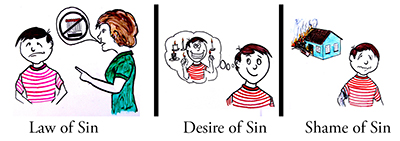And He commanded us to preach to the people, and to testify that it is
He who was ordained by God to be Judge of the living and the dead.
Acts 10:42*
“All rise!” ordered the bailiff. The courtroom fell silent as the judge entered wearing a black robe and a dark expression on his face. The mood was unusually somber because the fate of the man already convicted of multiple murders and felonies was to be handed down. The judge cleared his throat, repeated the seriousness of the crimes committed, and then declared the sentence: Life plus 120 years without parole.
That punishment, reported to be extremely stiff, only underscores the inadequacies of the human justice system. At best, man can only punish the living. A criminal with three consecutive life terms can be out in a week if he dies in his cell.
In preaching the gospel, Peter called Christ the Judge of the Living and the Dead in order to convict people of sin. The idea is that either in this life or the next, everyone must answer to the Lord Jesus for what they have done. The purpose is to evoke the fear of God that leads to repentance. Godly fear can be a very healthy thing.
Sometimes it seems that people literally get away with murder. They can either bury the evidence, bribe the witnesses, or find a loophole in the law. They feel that if they can escape punishment before they die, they somehow have won the game of life. Boy, are they wrong!
It’s the job of a faithful witness to declare that true and lasting judgment will finally come. Some may be successful at mocking human justice, but no one can make light of the Judge of the Living and the Dead. The message that must be proclaimed is “Behold, now is the accepted time; behold, now is the day of salvation” (2 Corinthians 6:2).
*see also 2 Timothy 4:1; 1 Peter 4:5
July 28
